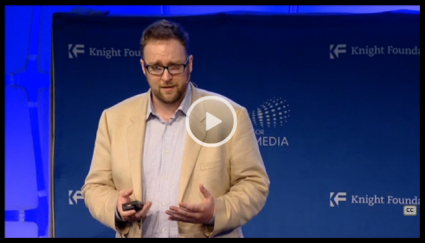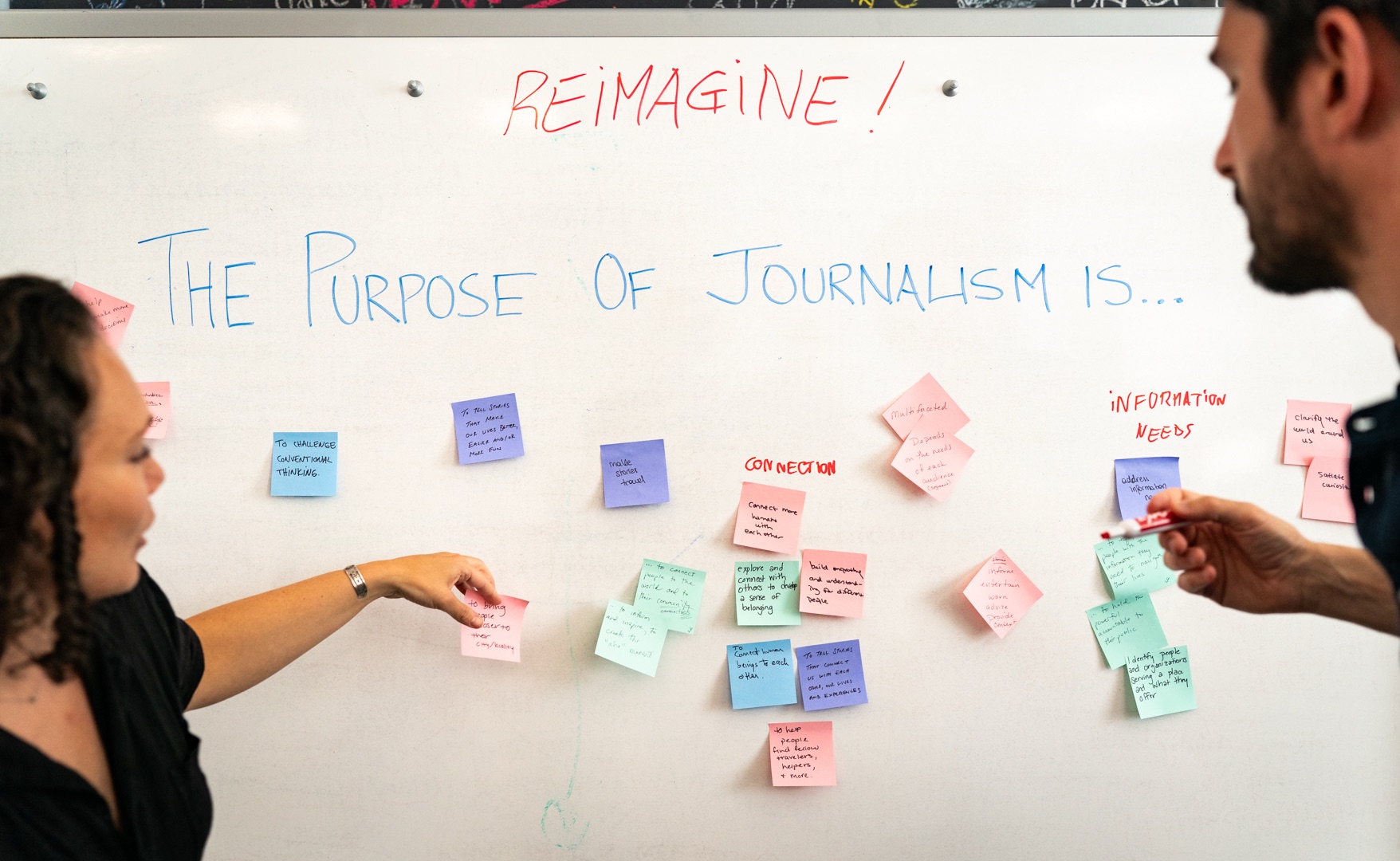In our profile series, we often ask the question:
If you could design an application that would solve any problem in the world, what would it be?
Clay Johnson, the subject of our most recent profile, was recently awarded a Knight News Challenge grant, so he was ready with an answer substantial enough to deserve a piece of its own.
With Adam Becker, Johnson has started a company, the Department of Better Technology. They are designing tools to improve the bidding process for government technology contracts. The current process makes it difficult for small businesses to discover and bid on contracts, and also makes it challenging for journalists and transparency advocates to see where public money is going. Watch a primer on their idea:
Read on for a deep-dive into their project and how the average citizen can help out.
Miranda: What are you working on these days?
Clay: Pretend America is a car. The inside of the car represents all the government programs and all the people that government manages and supports. We're having a debate right now that goes something like this: The car isn't going fast enough. So what republicans tell us is that we have to reduce the cargo and passenger capacity of the car so that it's not carrying as much (cut programs) and can go faster . Democrats are saying that we need to put more fuel in the car (raise taxes) so that the engine can burn more gas.
What they're not talking about is the miles per gallon of the engine, and if America was a car, it'd be getting about 10,000 gallons to the mile. And this is the kind of thing we need to be talking about when it comes to government spending. How is a debate about government spending honest if we're talking about what government spends its money on, but not how?
Much of what government spends, it buys in the form of products or services, from the private sector. The how of this is called "procurement." And procurement at every level of government is broken. Looking at IT purchases from government, you see all kinds of whack: Recovery.gov cost the taxpayer $19 Million Dollars. Sam.gov totals up to $74, and if you throw in the help desk, hosting and the other expenses around it? $181 Million.
When it comes to information technology, not being able to buy quickly or affordably is really scary because the rate at which technology is accelerating is exponential. Today if you walk into a government office, it's common to see two computers on a worker's desk. One is about six years old, and was "procured" by the agency for the worker to use. It is used to display a screensaver of the agency's logo. The other, is a modern computer that the worker has purchased themselves to get their work done.
As technology progresses, the gap between what we as individuals have and what government has access to grows wider, exponentially. So at what point is it that industry has flying cars and government has buicks? This ever widening gap is responsible for a lot of people's dissatisfaction with government -- from Congress' inability to adequately listen to the public (because it cannot afford to develop the tools necessary) to your common problems at the Department of Motor Vehicles. And that's not even getting to large, institutional procurement problems -- ever notice that your airline's website is really terrible? It's probably because procurement all but ensured that terrible vendors got to build it at incredible amounts of money very slowly.
Miranda: What can you tell us about this news challenge grant project, Procure.io?

I want badly to believe in Tim O'Reilly's concept of "Government as a Platform" but the truth is, you can't have government as a platform if you're building the platform out of billion dollar toothpicks. Moreover, it's hard to provide the taxpayer a return on investment when you've got a platform that costs a billion dollars only supports a handful of million dollar businesses.
Procure.io and her SaaSy sister, Screendoor.io are about opening government for business. Now that you know that a website like Sam.gov ended up costing the taxpayer $181 million dollars (so far!), isn't it somewhat strange that there's this new era of "civic hacking" for government where intelligent, talented programmers are essentially working as volunteers for food? Sure, right now it has to be done, but I'd rather see the best of the best going to work directly for government, not out of duty, obligation, or service, but because government can pay them to improve service delivery or innovate.
You're supposed to volunteer to help people to help those that are poor, not those that are misguided. Government doesn't need help with free software. It needs help fixing how it buys things.
Right now that crew—the crew of the talented—is locked out because contracts don't go to the most talented, they go to the people who can navigate regulation the best. We're trying to open that door by doing three things:
- Making it easy for government to ask for the right things,
- Making it easy for talented people to discover needs from government and to bid on those projects, and
- Making it easy for government to pick the right people to do the project.
Miranda: How do you think we could improve the way citizens and government interact? What can I do?
It's brass-tacks time for opengov. We've had the rah rah stuff happening for years, but now it's time to work on the hard problems that need change. The bad news is, well, they're really hard problems that will take years. The good news is, the rewards for fixing them will pay much higher dividends.We don't need better websites, we need government to have better access to technology.
Realistically much of the problems that we face aren't obvious. Congress doesn't need term limits as much as we do better listening tools to understand what constituents are saying. We don't need better websites, we need government to have better access to technology. But most importantly, what we need is a sense of civic duty that goes beyond some random Tuesday in November.
So the first way we improve citizens and governments interaction is by becoming more active participants in government—understanding that there's a huge difference in the skill it takes to elect someone and the skill it takes to govern people—and working with government to help it be as great as it can be.
If you're playing a game of chess, and all you're doing is reacting to your opponent's moves, you're almost certain to lose. You've given up control of the game to your opponent—she is defining your moves with her own. Unfortunately, much of our work in causing change in government is the same: Most of our interactions with government are either transactional or about putting out fires. We're either standing in line at the DMV, or outraged about something that government's done. This isn't now we get good results in our republic.
The second way we can improve that interaction is by starting to think bigger and think backwards from where we want to be. Those of us in open government movement—both inside and outside of government and myself included—have not done a great job of expressing a vision of the world. Given the ultimate goals of what we're trying to do, taken to their reasonable end, what does that look like? Draw it out for me, what does a world where government as a platform is fully embraced actually look like? Tell me a story of how my life looks and why it's going to be awesome because of the change we're creating.
That story needs to get told to citizens if they're ever going to be interested in this stuff.
Finally, we can improve our interactions with government by asking "what are you doing about fixing procurement?" at your government-sponsored hackathons.
Learn more about Procure.io and Screendoor.io on Knight Foundation's grant page. Find and follow the team on Twitter — @dobtco, @cjoh, @AdamJacobBecker.
About the author





